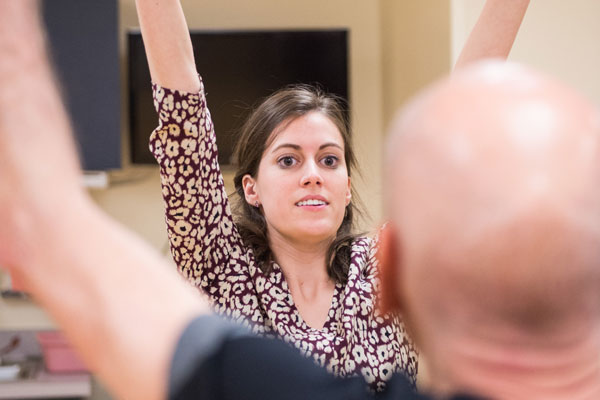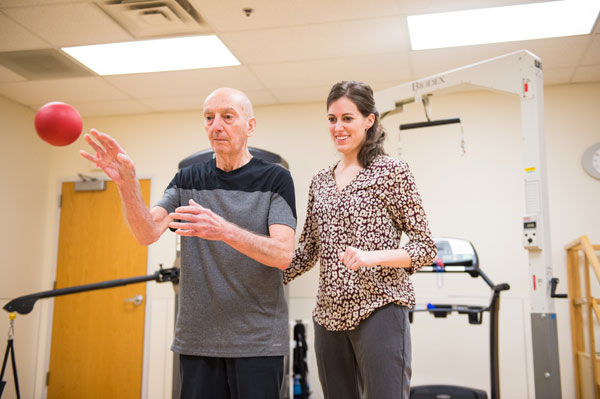UM-Flint Neurologic Residency Program Earns Accreditation

The University of Michigan-Flint Neurologic Residency Program within the Department of Physical Therapy has earned accreditation from the American Board of Physical Therapy Residency and Fellowship Education, making it the first in the state to receive the special designation.
Physical therapy residencies are designed to advance clinical expertise of physical therapists in specialty areas of practice within the field. UM-Flint's Physical Therapy Department also has accredited residencies in orthopedics and pediatrics.
UM-Flint has partnered with the University of Michigan Health System in this endeavor. The program gives residents a comprehensive clinical experience at various practice settings within the health system. Clinical faculty who are neurologic physical therapy specialists provide one-on-one mentoring to the residents, with an emphasis on evidence based practice and patient-centered care. The courses, all online, are taught by UM-Flint faculty.
It is a one-year intensive post-doctoral program. Neurologic physical therapy focuses on the evaluation and treatment of nervous system diseases and injuries, such as stroke, dementia and epilepsy.
Dr. Min H. Huang, assistant professor of physical therapy and coordinator of the neurologic post professional certificate and residency program for the Physical Therapy Department at UM-Flint said that accreditation demonstrates that the "program has met the high standards for residency education." The distinction also brings more national awareness to the UM-Flint program.
"Receiving accreditation is vital to promoting a residency program, ensuring the quality of the education for residents, improving patient outcomes and establishing excellence in patient care. Our profession has evolved towards "direct access", allowing patients to seek physical therapy services without a doctor's referral. Advance clinical training through residency education is critical in order to prepare physical therapists for this challenge," Dr. Huang said.
According to the program description, residents "complete clinical rotations through the continuum of patient care, including Neurologic ICU/Acute care, inpatient rehabilitation, vestibular rehabilitation, and outpatient rehabilitation. The program curriculum is designed to bridge the gap between entry-level physical therapy education and the knowledge required for advanced practice. One of the program's main goals is to prepare the residents for the certificate exam of Neurologic Clinical Specialist by the American Board of Physical Therapy Specialties."
Dr. Rachel Reed, who graduated from the program in December, was the first resident. She previously practiced physical therapy in Ohio.

"I really liked how it was a combination of academic and hands-on," Dr. Reed said, with clinical work tackling numerous neurological challenges such as stroke, Parkinson's Disease, and traumatic brain injuries.
The UM-Flint faculty were supportive throughout the year, she said.
"They were all easily available to me. I knew the resources," Dr. Reed said." They ran the program very well. It was nice to have. You could tell the classes were set up in a way that were never problematic."
Dr. Huang said the university plans on slowly building up the program to maintain the high standards.
"We anticipate the enrollment in the first couple years to be kept under five residents per year to ensure the delivery of high-quality residency education. We are currently developing additional residency training clinical sites," she said. "Potentially each site will recruit additional residents for the program."
Related Posts
No related photos.
UM-Flint News
The Office of Marketing & Communications can be reached at mac-flint@umich.edu.